Snapper-Grouper Fish Species Identification Training to Strengthen the Blue Economy in East Nusa Tenggara

Media Contacts
-
Adia Puja Pradana
Communications Specialist Ocean Program YKAN
Yayasan Konservasi Alam Nusantara
Email: adia.pradana@ykan.or.id
Yayasan Konservasi Alam Nusantara (YKAN), in collaboration with the Marine and Fisheries Product Quality Control and Supervision Agency (BPPMHKP) of the Ministry of Marine Affairs and Fisheries (KKP), and the Marine and Fisheries Office (DKP) of East Nusa Tenggara Province, conducted a snapper-grouper fish species identification training to support improved data accuracy and sustainable fisheries management in Indonesia. The training was held from May 26 to 28, 2025, at Celebes Restaurant in Kupang, East Nusa Tenggara (NTT).
The training, titled "Identification of Deep-Sea Snapper-Grouper Species, as well as Tuna and Small Pelagic Fish in Indonesia for Improved Data Accuracy," is part of the Koralestari Program, an initiative led by YKAN to strengthen fisheries management associated with coral reef ecosystems, while promoting the blue economy and marine environmental restoration.
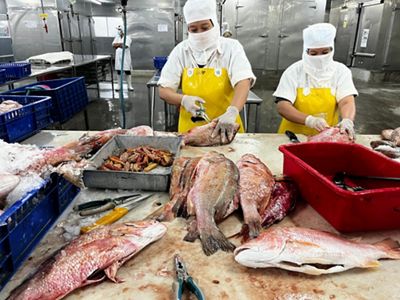
Attendees included representatives from Fish Processing Units (UPI), KKP staff, and the National Marine Conservation Area Center (BKKPN) Kupang. The training focused on identifying 134 fish species, comprising 100 species of snapper, grouper, and lencam, as well as 34 species of tuna and small pelagic fish. Training materials included species identification books, pocket guides, visual presentations, and hands-on practice with local specimens.
The Head of DKP NTT Province, Sulastri H. I. Rasyid, welcomed this training initiative. "NTT has a high diversity of fish species, including snapper and grouper. However, local names often vary, creating challenges in the supply chain and marketing. This training helps us correctly identify species, ensuring proper naming from fishermen to market," she said.
Sulastri also emphasized the importance of collaborative efforts to support the blue economy in NTT. "Through the Koralestari program initiated by YKAN, we must collaborate to focus on blue economy activities, considering that about 25% of NTT's population are coastal communities working as fishermen."
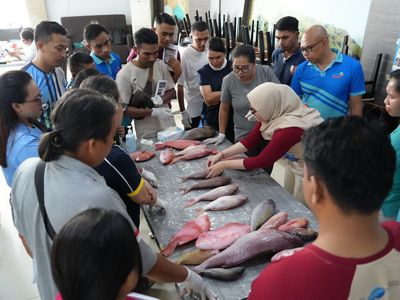
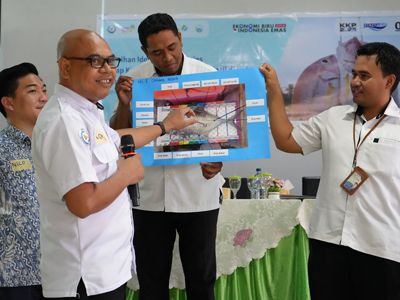
Ridwan S., Head of BPPMHKP Kupang, stated that this training aligns with efforts to improve fisheries management. "There are at least 26 UPIs in NTT with export licenses. With more accurate identification, our fishery products will be better received in international markets. Moreover, we can improve fisheries management economically and ecologically," he explained.
The Head of BKKPN Kupang, Imam Fauzi, shared the same sentiment. "With more accurate identification, we can make better managerial decisions to maintain a balance between the utilization and conservation of marine resources," he stated.
Victor Chandra, the Production Manager of PT Hutama Jaya Chandra, a private sector participant in the training program, emphasized the significance of the training in addressing the current challenges faced by the fisheries industry. According to him, fish production, particularly snapper and anggoli, has declined drastically by 20%-30% over the past five years, partly due to climate change and global market pressures.
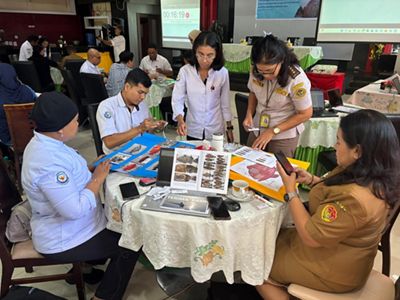
"Over the past two years, the business sector has also been affected by intense global competition, lowering prices and market acceptance for low to medium-quality fish. As a result, fishermen struggle to sell their catch at optimal prices. With good fishing practices and a focus on sustainability, we believe the fisheries industry in NTT can grow fairly, sustainably, and benefit everyone," said Victor.
Species Identification as the Key to Fish Stock Management
Since 2016, YKAN has supported KKP in strengthening fishery resource management, including through the enactment of the Minister of Marine Affairs and Fisheries Decree No. 123 of 2021 on the Snapper and Grouper Fisheries Management Plan (RPP) and assisting in the development of fisheries utilization strategies in Indonesia's Fisheries Management Area (WPPNRI) 573, covering the Savu Sea, NTT.
YKAN’s Senior Manager for Sustainable Fisheries, Glaudy Perdanahardja, explained that this activity is part of a strategy to strengthen fisheries traceability systems and data transparency. "Accurate species identification is crucial for building precise stock data, which in turn supports sustainable fishing practices and ensures the quality of our marine products," he said.
According to him, this identification and data recording method will also enhance the quality assurance system from upstream to downstream. "Through partnerships with the private sector and government, we aim to build a system that promotes environmentally friendly and traceable fishing practices," he added.
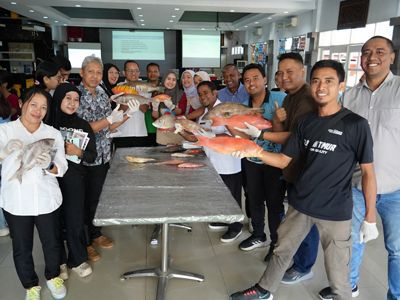
Through this training, participants are expected to independently identify at least 100 species of deep-sea snapper-grouper and 34 species of tuna and small pelagic fish. Additionally, this activity is expected to strengthen partnerships between the government, businesses, and relevant institutions in building a transparent, sustainable, and fair fisheries system.
Yayasan Konservasi Alam Nusantara (YKAN) is a scientific-based non-profit organization that has been present in Indonesia since 2014. With the mission of protecting lands and waters as life support systems, we provide innovative solutions to realize the harmony of nature and humans through effective natural resource management, prioritizing a non-confrontational approach, and building a network of partnerships with all stakeholders for a sustainable Indonesia. For more information, visit ykan.or.id.

